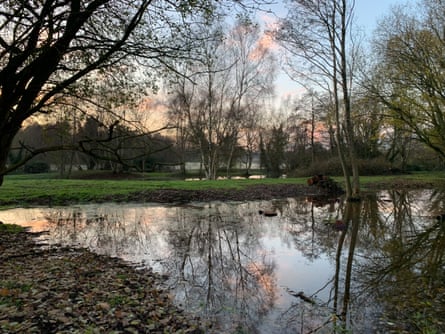The country of England has implemented regulations on biodiversity to require construction companies to make up for the damage done to natural habitats.
This week, England is implementing a biodiversity credit plan that aims to ensure new road and house construction projects have a positive impact on nature rather than causing harm.
The concept of “nature market,” referred to as biodiversity net gain (BNG), requires that all new construction projects result in a 10% increase in biodiversity or habitat. For instance, if a road destroys a forest, another one must be created in its place, either on the same property or elsewhere.
The regulation will be enforced by the Town and Country Planning Act on February 12th for larger sites, and April 2nd, 2024 for smaller sites.
According to Natalie Duffus, a researcher from the University of Oxford, the new scheme will encourage people to consider ways to reduce and address the environmental impact of upcoming developments. Duffus, who studied the effects of BNG trials on conservation, believes that the scheme has the potential to restore various habitats.
The government’s goal is to construct 300,000 new homes annually by the mid-2020s. Any land impacted by these developments will be reimbursed according to the updated regulations.
According to Duffus, this is one of the most ambitious programs on a global scale. Other countries are observing and taking note of its progress. If executed successfully, it has the potential to serve as a model for other markets in various nations.
She stated that countries like Sweden, Singapore, Scotland, and Wales are among those who are interested in adopting or adapting the idea for their own purposes.
According to ecological economist Sophus zu Ermgassen of the University of Oxford, England’s program is unparalleled in its extent as it applies to all new construction and protects all natural habitats. He adds that other offset policies in other countries often have numerous exceptions or only focus on one type of impact.
A significant issue facing biodiversity markets globally is the low demand. So far, only $8 million has been allocated or promised for biodiversity credits worldwide. The total global funding for biodiversity is $169 billion per year, with the majority coming from domestic public sources. The UN states that this amount needs to rise to $200 billion from all funding sources (public, private, domestic, and international) by 2030.
According to zu Ermgassen, the demand for biodiversity credits or offsets is low unless there is a significant motivator. He also notes that having a compulsory market for all developers can increase the scale and attract more investment and activity.

Display the image in full screen mode.
The regulation of BNG is overseen by various bodies, such as local government and government agencies. This is considered a benefit of the program, as it prevents the issue of self-assessment that is often associated with voluntary markets.
Unfortunately, there are not enough regulators to ensure that the promised improvements to habitats actually happen. A recent study discovered that over 25% of Biodiversity Net Gain units may not result in any noticeable increase in biodiversity due to the lack of a monitoring system. There are also worries about an inadequate number of ecologists to oversee and accurately assess habitats. In some cases, there may be a conflict of interest if the ecologists are employed by the developer.
According to Tom Oliver, a professor at the University of Reading who specializes in applied ecology, lax enforcement often leads to the failure of environmental regulations. He believes that the success of BNG (an environmental initiative) is dependent on strong regulation, monitoring, and policing. However, past case studies have demonstrated a pattern of inadequate enforcement and policing, which undermines the effectiveness of these mechanisms. Implementing a new approach that relies on these same mechanisms may not be successful if they continue to be ineffective.
A significant portion of the off-site habitat restoration required by the plan, such as developing and safeguarding wetlands, wildflower meadows, or woodlands, is anticipated to take place on agricultural land. However, there may be a shortage of farmers willing to participate due to uncertainty about the potential market size.
According to Ben Taylor, the manager of Iford Estate farm in East Sussex, predicting success in this new market is uncertain and risky, causing hesitation among farmers.
Amanda Williams, the leader of environmental sustainability at the Chartered Institute of Building, expressed satisfaction with the launch of the legislation despite previous delays.
In the coming years, the existing BNG laws do not adequately consider the complete environmental impact of construction. This is because it does not take into account the production and processing of construction materials, such as timber, sand, gravel, iron ore, and rocks, and how they impact biodiversity. According to her, this is a matter that will eventually need to be addressed.

Display the image in full-screen mode.
Over the past ten years, there has been an increase in private entities participating in the field of nature conservation, leading to a growth in the global market for voluntary biodiversity credits.
“The very first trades are starting to happen in these markets, it is super early days,” said zu Ermgassen. “There is no universally agreed standard, there are no universally agreed anything – it’s very much the piloting and innovating phase of that system.”
According to research by the Campaign for Nature, the private sector is playing a growing role in financing biodiversity credits. However, it is essential for governments to allocate resources towards funding biodiversity.
The lobby group’s report emphasized the importance of governments recognizing biodiversity as a public good, similar to law enforcement or defense. They suggested that governments should provide funding for public goods or incorporate them into private investment decisions through public policies, regulations, and incentives.
Source: theguardian.com


